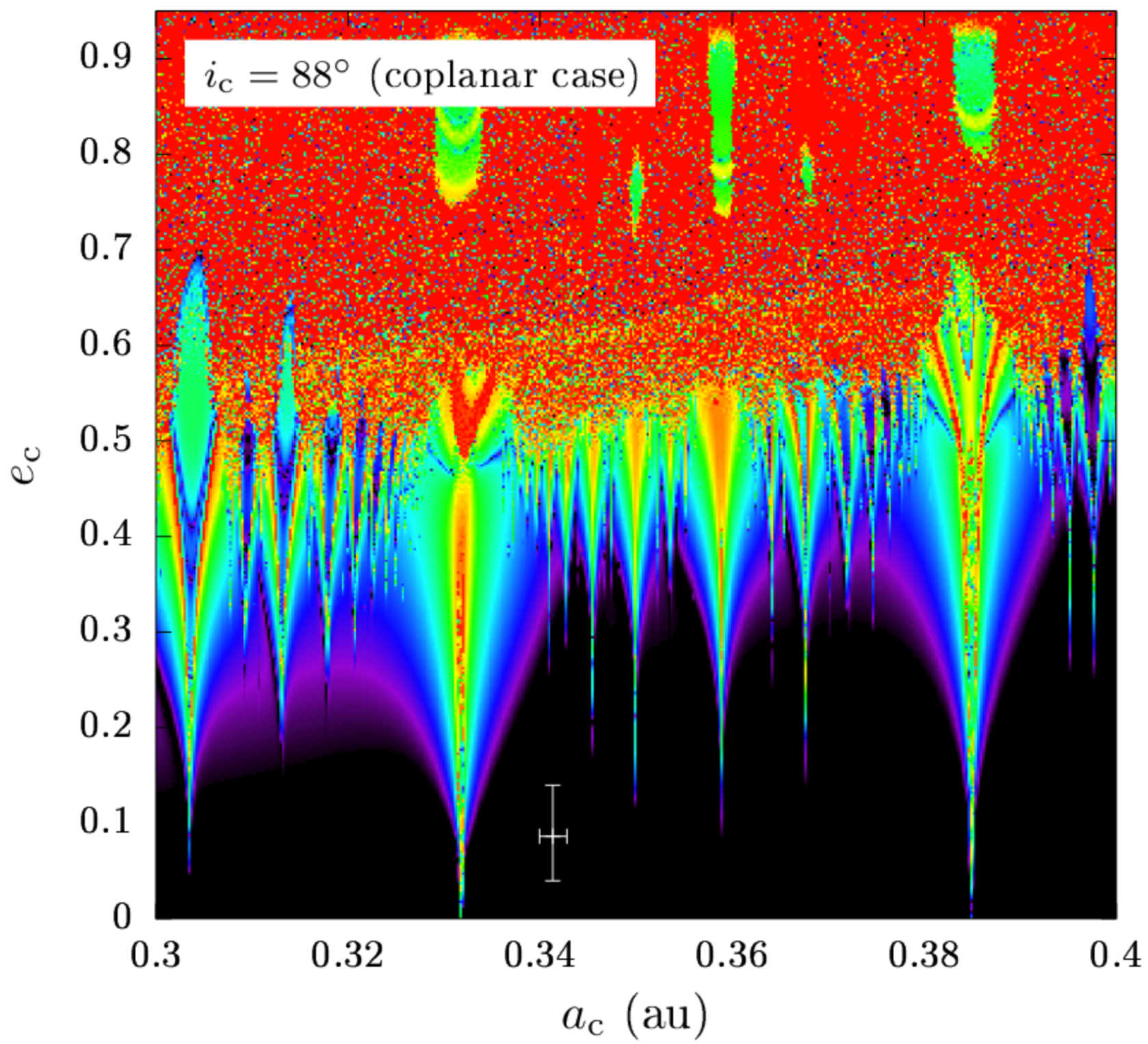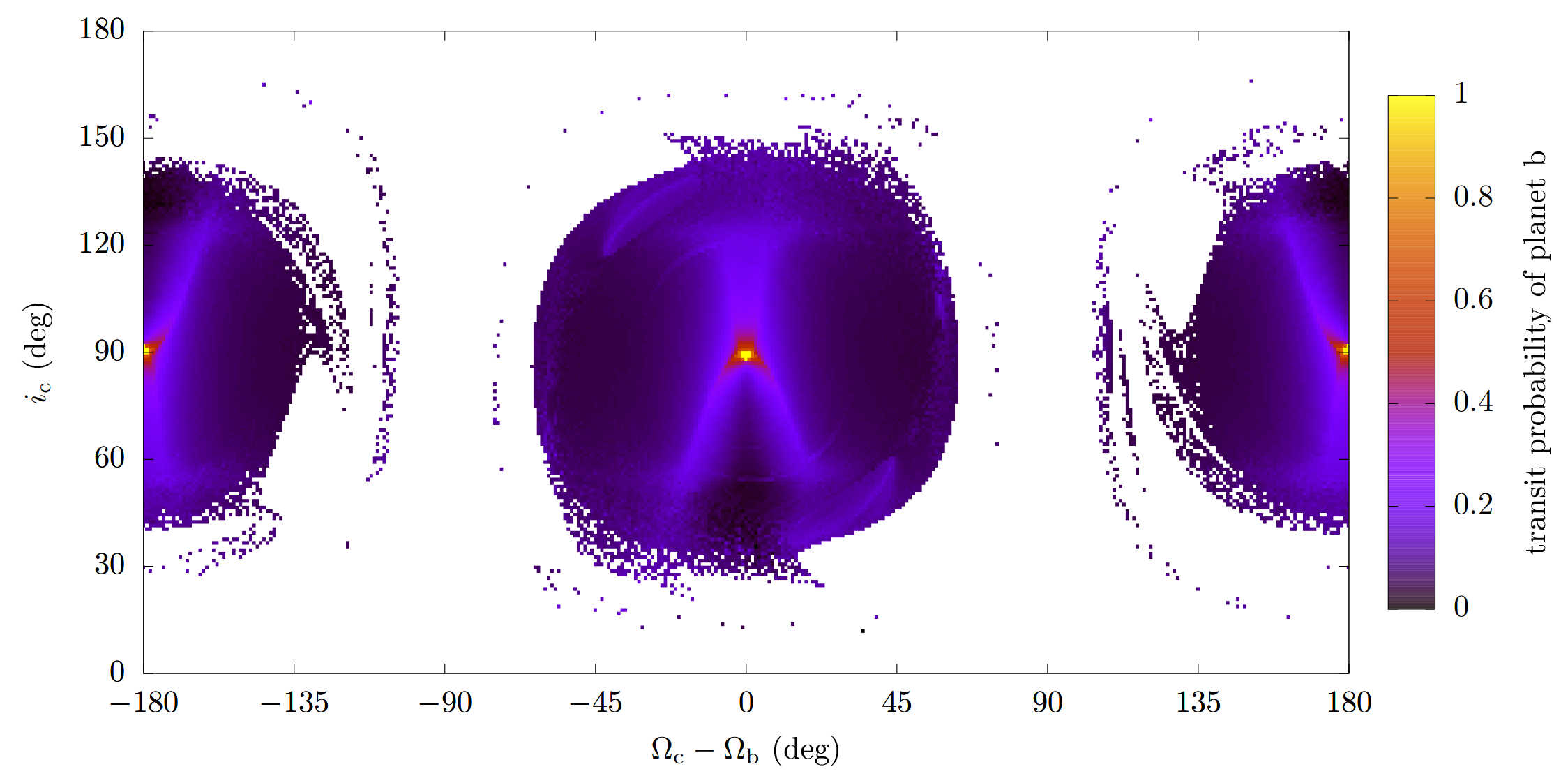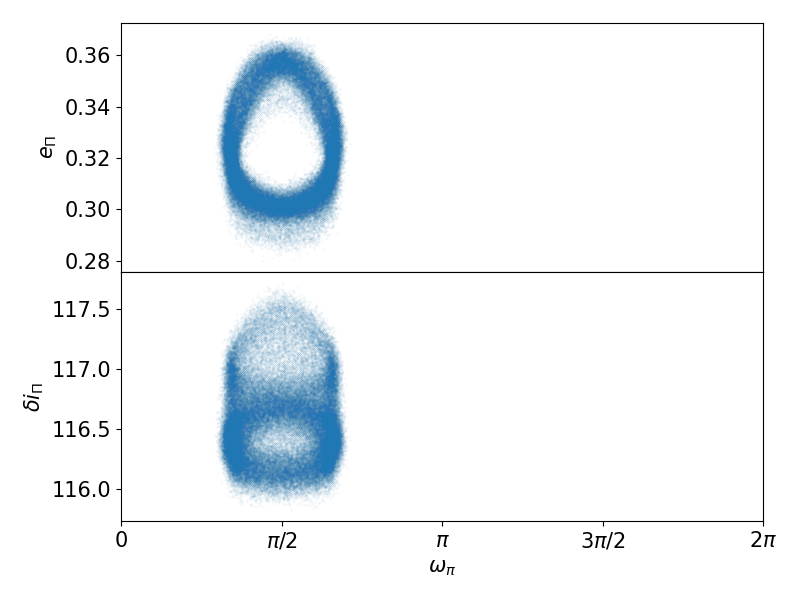
In a planetary system, planets mutually interact gravitationally, which modifies their orbits around the central star. These orbital variations can be:
These types of evolution are not mutually exclusive. For instance, a resonance can produce a strong secular evolution of the eccentricity of a planet, eventually leading to close encounters between planets, and therefore to fast orbital chaos.
In today's Solar System, the orbits of the planets mostly vary in a secular way. The secular dynamics of the terrestrial planets is yet chaotic. This secular chaos (or "slow chaos") may lead to colisions between planets on a timescale of several billions of years.
Observed exoplanetary systems generally have ages ranging between several hundred million years and several billions of years. Therefore, it is very unlikely to observe them in a state of fast chaos able to shortly lead to planetary ejections or collisions.
This fact can be used to refine our knowledge of the orbits of these exoplanets: for this, one just needs to exclude orbital parameters leading to fast chaos.
As part of a study led by Sophia Sulis, and together with Charlie Lebarbé, we have used this method to constrain the mass and orbital inclination of the exoplanet HD 73344 c. However, the constraint set by the system's stability is not very stringent.

Yet, because of secular mutual interactions between the two planets in this system, the orbit of the interior planet, HD 73344 b, may strongly change over time. As a result, this exoplanet may only transit in front of its host star (as observed today) during a fraction of its secular evolution.
This fact can be used to strongly constrain the inclination and mass of exoplanet HD 73344 c: for this, one just needs to exclude orbital parameters for which the transit probability of planet b is very low [xxv].

Pulsars are remnants of massive stars at the end of their life. They spin very fast and emit a periodic radiation that can be observed from the Earth. The precise timing of this signal can be used to detect minute gravitational perturbations in the neighbourhood of pulsars. This method led to the discovery of the first exoplanets.
I am involved in the project of Guillaume Voisin in his study of pulsar PSR J0337+1715, which is orbited by two white dwarfs. A particular kind of signal in the timing of this pulsar led him to propose the existence of a small planet in orbit around this triple system, whose mass would be about half the mass of our Moon.

Because of its hierarchical architecture, this system essentially interacts in a secular way. We have shown that the orbit proposed for the small planet is long-term stable, thanks to its peculiar inclination lying in the neighbourhood of an equilibrium point [xxvii]. Hence, this planet may be the only survivor of a population of small planets that had less stable orbits.
Last update: 2024-11.